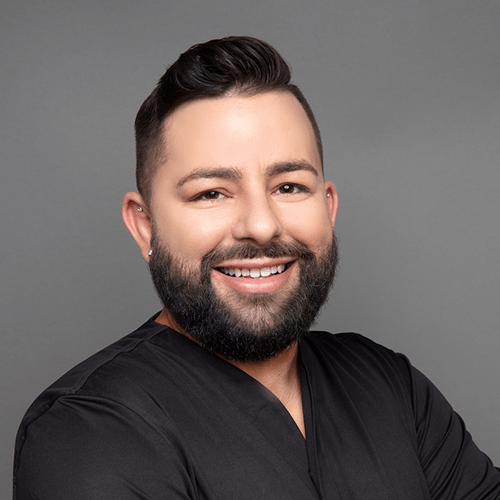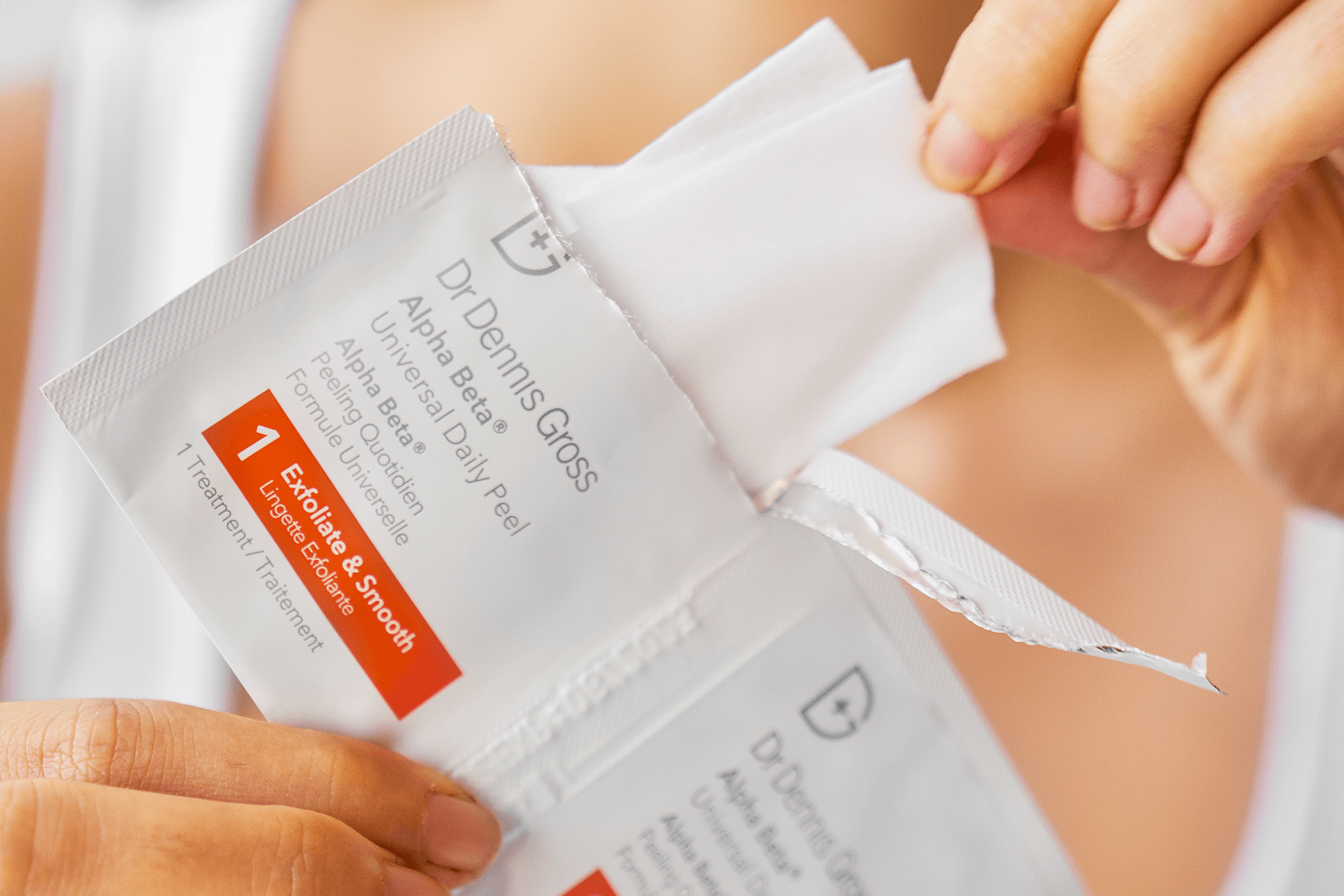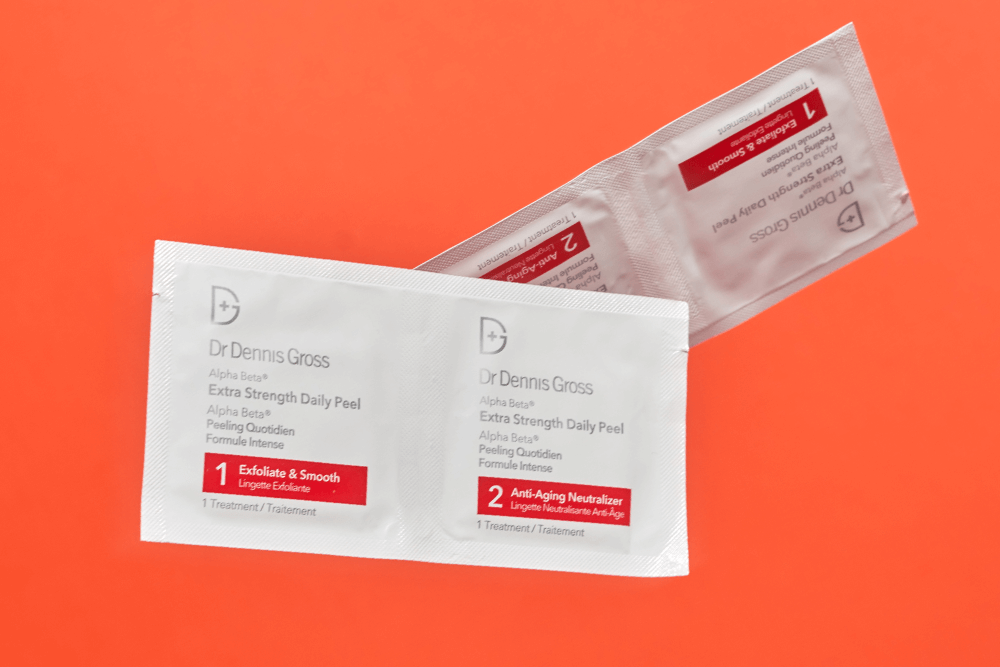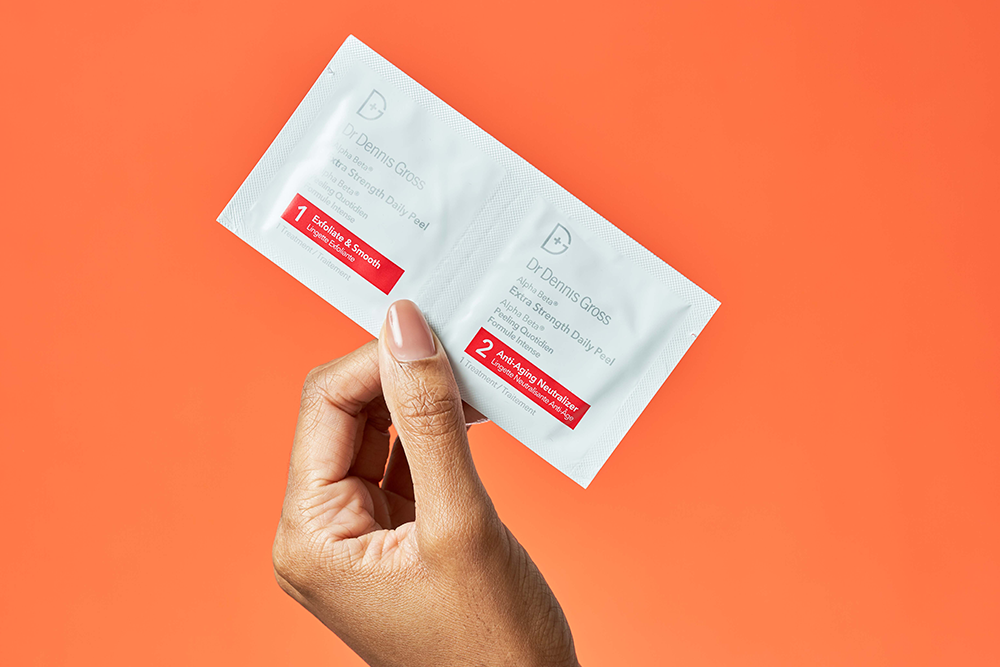The+Source
Table of Contents
Yes, we’re all unique, and every skin is different. That said, there are enough commonalities that dermatologists are able to group everyone’s skin into one of five categories: dry, balanced, combination, oily, and sensitive. Knowing your specific skin type allows you to formulate a targeted skincare plan that addresses your skin’s needs, as well as your skin goals.
The Five Skin Types
The first step is to familiarize yourself with the five different ways your skin type could be categorized.
Dry Skin
Common traits: When skin produces less oil on its own, the result is a flaky, dehydrated texture. Because oil production naturally slows with age, older adults tend to have drier skin. But the condition can happen at any age. Dry skin is also less supple than balanced or oily types, so it can become irritated and is also more likely to show fine lines and wrinkles. (Picture the cracks on a desert floor versus their appearance after a hard rain.)
Balanced Skin (Or Normal Skin)
Common traits: Balanced skin is that happy medium — neither too dry, nor too oily. It never really feels tight or greasy, and it rarely breaks out. It sounds like a unicorn, but this skin type does truly exist and shouldn’t be taken for granted.
Combination Skin
Common traits: When thinking of this type of skin (a blend of both dry and oily), the T-zone immediately comes to mind. Think greasy forehead, nose, and chin, and cheeks that can be flaky and dehydrated.
Oily Skin
Common traits: This skin type makes a lot of sebum around the clock, so it’s frequently shiny and also more likely to develop acne and visible pores. On the bright side, it’s also less inclined to show wrinkles.
Sensitive Skin
Common traits: Easily irritated, this is the type of skin that reacts to everything, whether it’s the fragrance in your face cream or the pollen in the air. It can also overlay any of the previously mentioned four types, meaning your skin could be both dry and sensitive or dry and oily, and so on.
How to determine skin type
The type of skin you have basically comes down to how much oil it’s making — a little or a lot. Keep in mind that sebum production can vary over time and be influenced by factors such as genetics, hormones, and the environment. This means that your skin may identify one way today and fall into a completely different category six months from now.
One easy way to gauge your skin’s oil production is to wash it with a basic cleanser, pat it dry, and then leave it be (don’t apply moisturizer or any serums or other skincare). After a half hour, assess the situation with the following criteria:
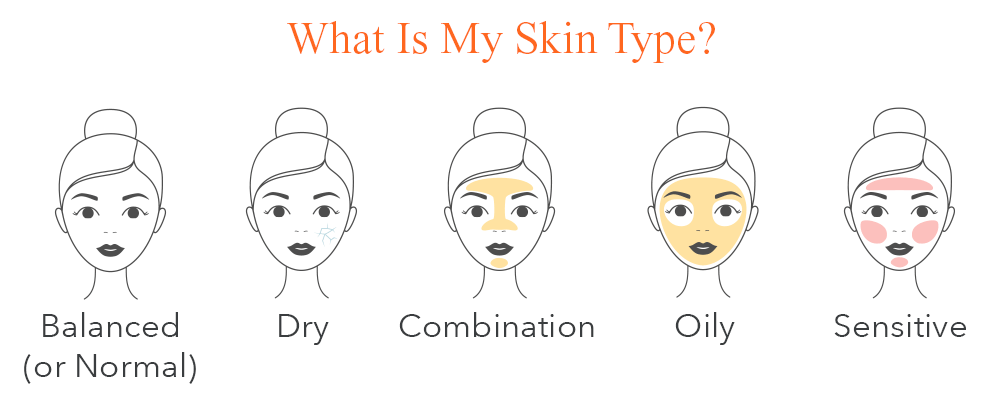
Skincare for your skin type
Now that you’ve identified the type of skin you have, here’s a routine to keep it in the best possible condition:
Dry
When skin lacks moisture, some effects are visible immediately (flakes, dullness) while others become apparent over time. That’s because a lack of hydration weakens skin’s moisture barrier, making skin more vulnerable to outside irritants (hello, redness) and fine lines more noticeable. You’ll want every step of your daily routine to infuse skin with moisture, starting with your cleanser. Dr. Dennis Gross Hyaluronic Marine Meltaway Cleanser is full of ultra-hydrating hyaluronic acid and doesn’t need to be rinsed off with water. Then end the day with Dr. Dennis Gross Vitamin C Lactic Dewy Deep Cream. Rich in moisture barrier-strengthening squalane, this luxurious cream also contains high levels of vitamin C to help reduce the appearance of hyperpigmentation and fine lines, as well as niacinamide to minimize redness.
Balanced / Normal
If everything in your skin is working in harmony, you definitely don’t want to rock the boat. Your goal is to maintain the status quo. One way to do that is through consistent, daily chemical exfoliation. Using the Dr. Dennis Gross Alpha Beta Universal Daily Peel (formulated with alpha hydroxy acids, like glycolic and malic, and beta hydroxy acids, such as salicylic) will keep pores clear, helping prevent breakouts, and also encourage collagen formation, leading to firmer skin over time. And don’t forget about the skin around your eyes! It needs a special kind of TLC because it’s thinner and more delicate than the rest of the skin on your face. Dr. Dennis Gross Vitamin C Lactic Firm & Bright Eye Treatment addresses fine lines, crepiness, dark circles, and puffiness with a blend of brightening vitamin C and cell stimulating lactic acid.
Combination
When you’re trying to resolve breakouts at the same time that you address dry patches, figuring out an allover solution that tackles each issue simultaneously can seem tricky. Just like with dry skin, a solid routine starts with your cleanser. Dr. Dennis Gross Alpha Beta AHA/BHA Daily Cleansing Gel contains alpha and beta hydroxy acids to get pore-clogging gunk off your skin. But it’s also made with calming, soothing ingredients like jasmine and bisabolol, for balanced results. You still need to wrap up your routine with moisturizer but make it an oil-free version. Dr. Dennis Gross Vitamin C Lactic Oil-Free Radiant Moisturizer will keep skin supple with squalane and also reduce the look of fine lines, sagging, and hyperpigmentation, thanks to three forms of vitamin C.
Oily
When your complexion is predisposed to producing an overabundance of sebum, it can sometimes feel as though you’re fighting an uphill battle. But with the right regimen, you can take control of the situation. For this skin type especially, daily chemical exfoliation is a must. By keeping pores clear, you give oil an unimpeded path to the skin’s surface where it can be washed away. Dr. Dennis Gross Alpha Beta Extra Strength Daily Peel is formulated with seven types of alpha and beta hydroxy acids to ensure that you receive maximum power. And while it may seem counterintuitive, the way to reduce sebum production is not by starving the skin of moisture (this actually makes the situation worse). Oily complexions also require moisturizer daily, just in an oil-free formulation like Dr. Dennis Gross Alpha Beta Daily Moisturizer, which continues the pore-clearing theme with alpha and beta hydroxy acids as well.




